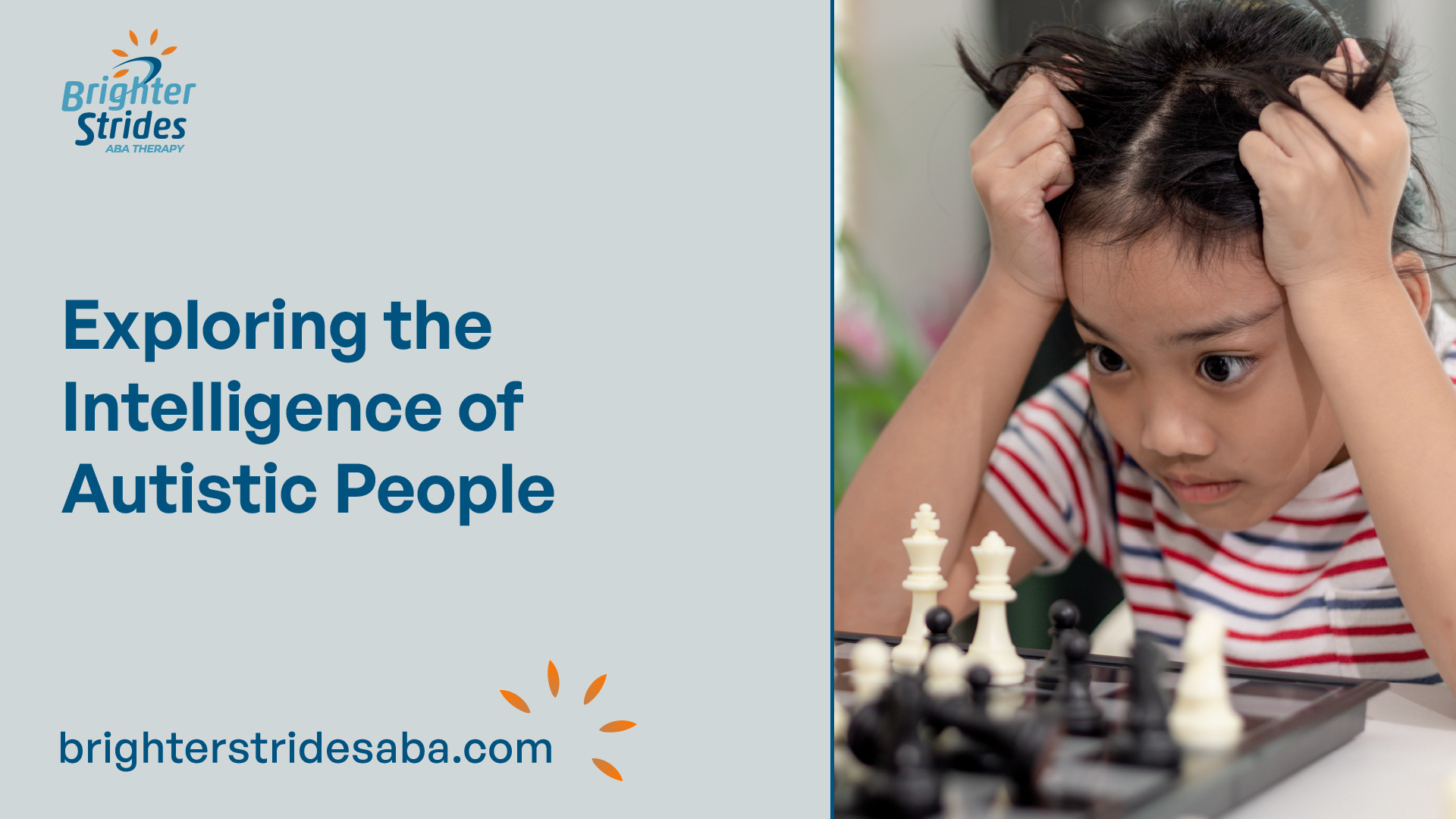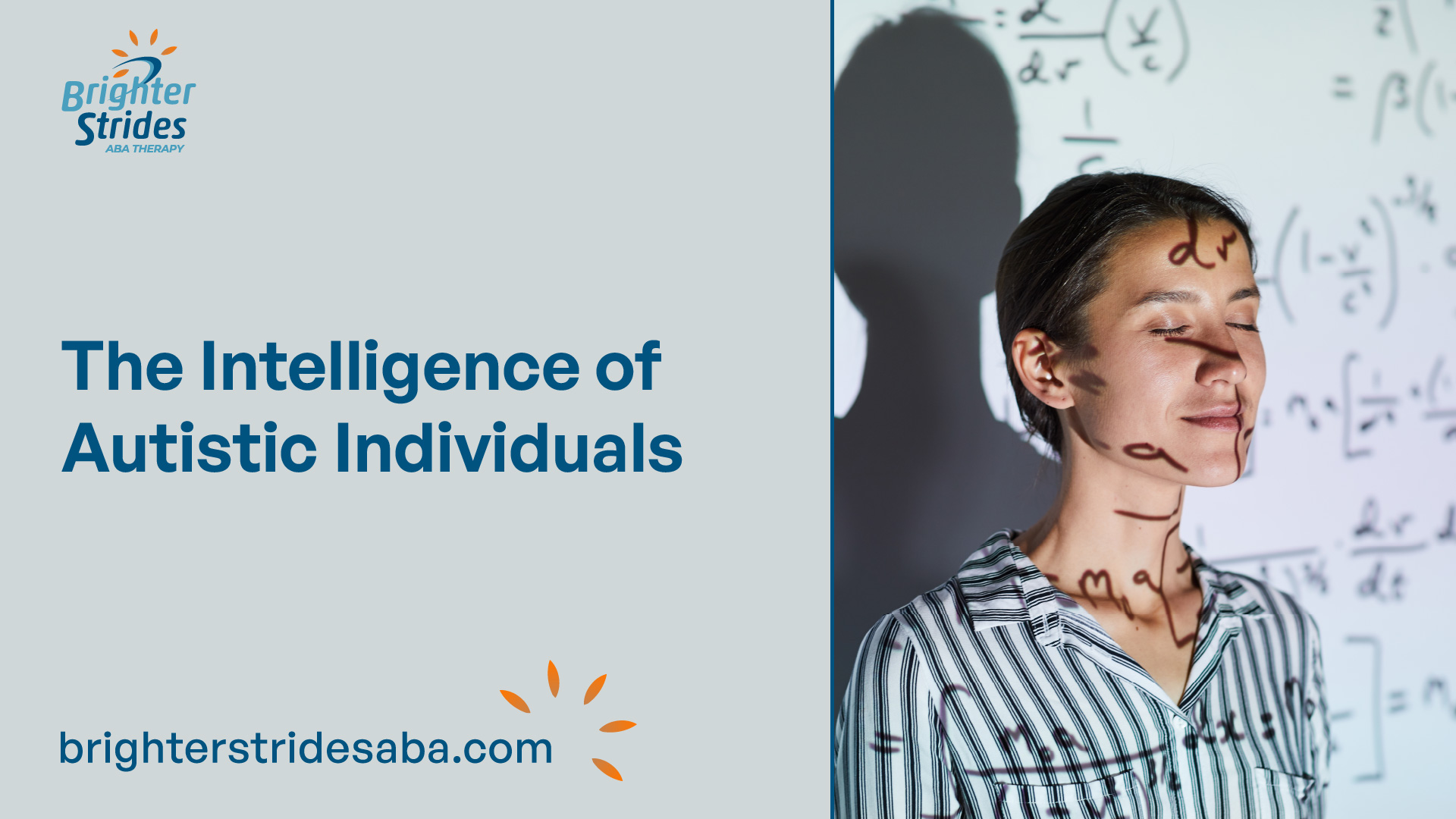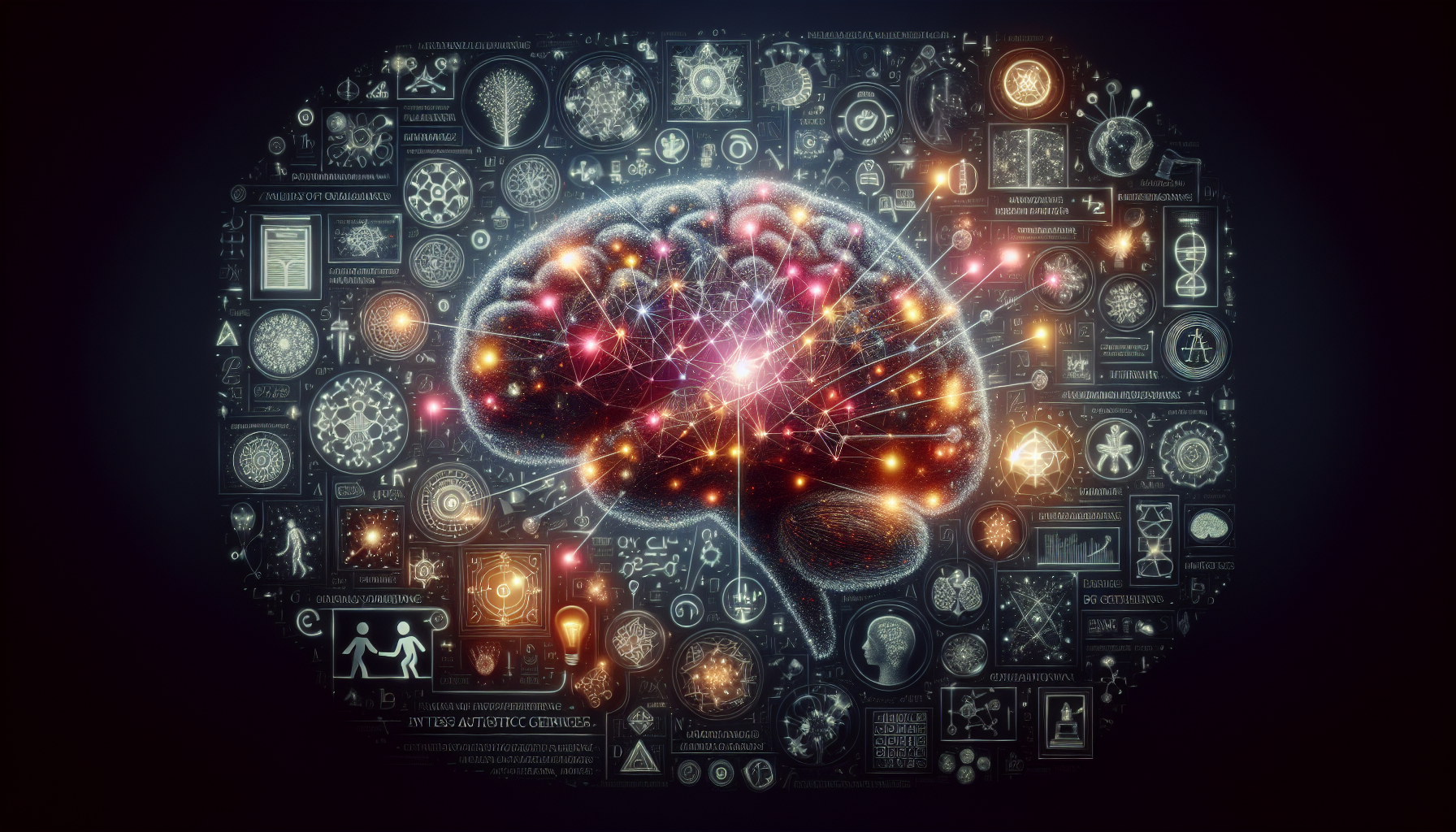
The Intelligence of Autistic Individuals
Autism is a complex neurodevelopmental condition that affects individuals in various ways. When it comes to intelligence, it is important to understand that autistic individuals exhibit a wide range of cognitive abilities. The notion that all autistic people are either exceptionally intelligent or intellectually disabled is a misconception. Let’s explore the understanding of intelligence in autism and debunk stereotypes.
Understanding Intelligence in Autism
Intelligence can be challenging to define and measure, and this holds true for individuals with autism as well. It is important to recognize that intelligence encompasses various domains and is not solely determined by a single test or assessment. While some autistic individuals may exhibit exceptional abilities in specific areas, such as art, memory, or arithmetic, it is crucial to acknowledge that intelligence is multifaceted and encompasses a range of skills and talents.
Research suggests that approximately 30-50% of individuals with autism also have intellectual disabilities. However, it is worth noting that autistic people vary greatly in intelligence, with some individuals having average or above-average intelligence levels, similar to the general population. Therefore, it is essential to recognize and appreciate the diversity of intelligence within the autistic community.
Debunking Stereotypes
One common misconception is the assumption that all autistic people are savants, possessing extraordinary abilities in specific areas. While some autistic individuals may indeed have exceptional talents, this is not representative of the entire autistic population. It is crucial to avoid generalizations and understand that intelligence in autism is not uniform, just as it is not in the neurotypical population.
Furthermore, research has shown that autistic individuals may exhibit both strengths and challenges in different cognitive domains. For example, they may demonstrate enhanced perceptual functioning and superior ability in certain tasks, while also experiencing difficulties in verbal skills and other aspects of cognitive functions. This variability highlights the importance of recognizing individual strengths and challenges, rather than relying on stereotypes or assumptions.

In conclusion, the intelligence of autistic individuals cannot be easily categorized or generalized. It varies greatly among individuals, with some having exceptional abilities, some having average intelligence, and others facing intellectual disabilities. By understanding the complexity of intelligence in autism and debunking stereotypes, we can foster a more inclusive and accurate perception of the diverse cognitive abilities within the autistic community.
The Complexity of Intelligence
When examining the intelligence of autistic individuals, it is essential to consider the complexity of intelligence beyond traditional measures. This section explores the limitations of IQ testing and the concept of multiple intelligences in the context of autism.
IQ Testing and its Limitations
IQ, which stands for intelligence quotient, is a measurement of intelligence obtained through IQ tests. However, it is important to recognize that IQ testing has its limitations, and its results may not fully capture the diverse range of abilities and strengths present in autistic individuals.
Autistic individuals exhibit a wide range of intellectual abilities, with some demonstrating exceptional talents in specific areas such as art, memory, or arithmetic. However, it is worth noting that approximately 30-50% of individuals with autism also have intellectual disabilities. This variation highlights the heterogeneity of cognitive profiles within the autistic population.
Multiple Intelligences in Autism
Beyond IQ testing, it is important to recognize that intelligence encompasses a broader spectrum of abilities. The concept of multiple intelligences suggests that individuals possess different forms of intelligence, each with its own strengths and areas of expertise.
Autistic individuals exhibit a range of cognitive abilities, which may vary across different domains. For example, while some individuals may struggle with verbal skills, they might excel in non-verbal areas such as pattern recognition or visual-spatial tasks. This imbalance in cognitive abilities can result in a profile that reflects extremes of typical variation.
Intelligence in autism is influenced by genetic factors and overlaps with other traits. It is a polygenic trait with a clear genetic basis, and assortative mating contributes to the maintenance of additive genetic variation for intelligence. These genetic factors, combined with environmental influences, contribute to the unique cognitive profiles observed in autistic individuals.
By recognizing and embracing the concept of multiple intelligences, we can appreciate the diverse strengths and talents of autistic individuals. It is essential to move beyond the narrow focus on IQ and instead foster an inclusive environment that values and nurtures the unique abilities and potential of each individual.
Understanding the complexity of intelligence in autism can help dispel misconceptions and promote a more accurate and inclusive understanding of the intellectual capabilities of autistic individuals. By focusing on individual strengths and supporting the development of these strengths, we can create a more inclusive society that recognizes and celebrates the diverse talents and abilities of all individuals, including those on the autism spectrum.
Variability in Intelligence
Autistic individuals display a wide range of cognitive abilities, and it is important to recognize the variability in intelligence within this population. While some individuals with autism may have exceptional talents and skills, others may have intellectual disabilities. Let’s explore the range of cognitive abilities and exceptional talents often found in autistic individuals.
Range of Cognitive Abilities
Autistic individuals, similar to the general population, exhibit a broad spectrum of cognitive abilities. Not all individuals with autism have intellectual disabilities. In fact, many autistic individuals have average or above-average intelligence levels [2]. It is crucial to avoid generalizations and understand that intelligence among autistic individuals varies widely.
Research suggests that approximately 30-50% of individuals with autism also have intellectual disabilities [1]. However, it is essential to recognize that intelligence is not solely determined by an autism diagnosis. Each person’s cognitive abilities should be assessed individually, considering their strengths and challenges.
Exceptional Talents and Skills
While some autistic individuals may have intellectual disabilities, others possess exceptional talents and skills in specific areas. These talents can manifest in various domains, such as art, memory, mathematics, music, or computer programming. It is important to acknowledge and nurture these unique abilities.
However, it is crucial to dispel the misconception that all autistic individuals are savants or possess extraordinary abilities in all areas. While exceptional talents do exist within the autistic population, they are not representative of every individual. Each person’s strengths and abilities should be acknowledged and celebrated, but it is essential to avoid making sweeping assumptions about all autistic individuals based on a few exceptional cases.
Recognizing and supporting the diverse range of cognitive abilities and exceptional talents within the autistic community is vital. By valuing and nurturing individual strengths, we can create an inclusive and supportive environment for all autistic individuals to thrive.
Factors Influencing Intelligence
The intelligence of autistic individuals is influenced by various factors, including genetic factors and heterogeneous cognitive profiles.
Genetic Factors and Overlapping Traits
Recent studies have found positive genetic correlations between autism risk and measures of mental ability, indicating that alleles for autism overlap with alleles for high intelligence. This paradoxical relationship between autism and high intelligence is intriguing and suggests that certain genetic factors may contribute to both conditions.
Autism and high intelligence share several convergent correlates, such as large brain size, fast brain growth, increased sensory and visual-spatial abilities, enhanced synaptic functions, increased attentional focus, high socioeconomic status, more deliberative decision-making, and occupational interests in engineering and physical sciences. These shared characteristics highlight the complex interplay between genetic factors and intelligence in autism.
Heterogeneous Cognitive Profiles
Autistic individuals often exhibit a diverse range of cognitive abilities, resulting in heterogeneous cognitive profiles. They may display enhanced perceptual functioning and superior ability in non-rotational aspects of mental rotation tasks. However, they may also experience reductions in verbal skills and decreased ability in other non-rotational aspects of mental rotation tasks.
The psychometric structure of intelligence in autism reflects an imbalance, with increases in specific components of intelligence and decreases in others. This leads to a profile that reflects extremes of typical variation. Autistic individuals may excel in certain cognitive domains while facing challenges in others, highlighting the complexity of their cognitive abilities.
It’s important to note that intelligence in autism is not solely determined by a single factor or measure. Intelligence, usually measured by strong correlates of the general factor (g), has a polygenic basis and is influenced by assortative mating, which maintains additive genetic variation for intelligence and generates more extreme intelligence phenotypes.
The distribution of IQ scores in individuals with autism has shown variability across studies. While older epidemiological studies suggested a larger proportion of individuals with autism had below-average intelligence (IQ), more recent studies have reported a decline in the percentage of children with autism classified as having cognitive impairment (IQ < 70). In a larger sample of ASD patients seen at specialized outpatient clinics, a bimodal IQ distribution was observed, with a significant percentage of individuals having above-average intelligence (IQ > 115).
The heterogeneity in IQ distribution over the years may be attributed to factors such as sample biases, differences in availability of autism health services, referral biases, and the changing diagnostic concepts of autism. Additionally, IQ tests in individuals with autism often present a heterogeneous picture, with high values in some subtests and low ones in others. Therefore, other abilities, such as social communication, may be more relevant for differentiating between autism and non-autism.
Understanding the various factors influencing intelligence in autism can help challenge misconceptions and provide a more comprehensive view of the diverse cognitive abilities present in autistic individuals. Embracing the complexity of intelligence and recognizing the strengths of individuals on the autism spectrum is essential for promoting acceptance and inclusion.
Recognizing Individual Strengths
When it comes to intelligence, autistic individuals, like their neurotypical counterparts, exhibit a wide range of abilities and strengths. It is crucial to recognize and appreciate the unique cognitive profiles and talents of autistic people. By embracing neurodiversity and moving beyond intelligence labels, society can foster a more inclusive and supportive environment for all.
Embracing Neurodiversity
Embracing neurodiversity involves recognizing and valuing the diverse neurological characteristics and abilities of individuals on the autism spectrum. It is about celebrating the differences and unique perspectives that autistic individuals bring to the table. Rather than focusing solely on deficits or limitations, society should appreciate the strengths and talents that autistic people possess.
Autistic individuals can excel in various fields, including science, engineering, music, art, and computer programming. Many display exceptional intelligence and accomplish significant success in academia, technology, and the arts. By embracing neurodiversity, society can tap into the unique skills and perspectives of autistic individuals, fostering innovation and inclusivity.
Moving Beyond Intelligence Labels
Intelligence is a complex and multifaceted trait that cannot be simply measured by standardized IQ tests. Autistic individuals demonstrate a wide range of cognitive abilities, similar to the general population. Some may have intellectual disabilities, while others may exhibit exceptional intelligence and talents in specific areas. It is important to move beyond intelligence labels and avoid stereotyping all autistic individuals as either highly intelligent or cognitively impaired.
Instead of focusing solely on intelligence levels, society should recognize and appreciate the diverse strengths, talents, and abilities of autistic individuals. By providing inclusive educational and professional opportunities, we can create an environment that allows autistic individuals to thrive and reach their full potential.
In conclusion, autistic individuals possess a wide range of intelligence levels, talents, and abilities. Embracing neurodiversity and moving beyond intelligence labels is essential for fostering inclusivity and creating a society that values and supports the unique strengths and perspectives of autistic individuals. By recognizing and appreciating their individual strengths, we can create a more inclusive and accepting world for everyone.
Challenges and Self-Perception
Living with autism comes with its own set of challenges, particularly in the realm of self-perception and social interactions. Understanding these challenges is crucial to fostering a more inclusive and supportive environment for individuals on the autism spectrum.
Impairments in Self-System
Researchers have found that impairments in the self-system of individuals with Autism Spectrum Disorders (ASDs) are usually correlated with their social and cognitive functioning levels. High-functioning individuals with ASD, who have higher IQ, tend to have a better awareness of their limitations in social and communication domains than those with lower IQ.
Some researchers believe that individuals with ASD have impairments in the psychological self, such as theory of mind deficits, due to social and communicative impairments. On the other hand, others argue that individuals with ASD have selective rather than global impairments in the self.
These impairments in the self-system can affect how individuals with autism perceive themselves and their abilities. It is important to recognize that these challenges are not indicative of intelligence or lack thereof, but rather a manifestation of the unique cognitive and social characteristics associated with autism.
Impact of Social Difficulties
Individuals with autism commonly face challenges in joint attention, language, and social communication skills, which can lead to difficulties in social relationships and relating to peers. These difficulties can impact their self-perception and may lead to negative perceptions by others, such as being perceived as unintelligent or aloof.
Moreover, deficits in abstract reasoning and understanding of friendship are also observed in individuals with ASD. These deficits can negatively impact their daily social functioning and self-awareness. It is important to understand that these challenges do not reflect a lack of intelligence, but rather a different way of processing information and interacting with the world.
Individuals with ASD may also struggle with transitions and changes, which can have negative effects on their daily functioning and attitude towards certain situations. These challenges may intensify during adolescence and lead to emotional distress and negative impacts on self-image. It is crucial to provide support and understanding during these times to help individuals navigate these difficulties and foster a positive self-perception.
By recognizing and addressing the challenges faced by individuals with autism in terms of self-perception and social difficulties, we can work towards creating a more inclusive society that values and supports the diverse strengths and abilities of individuals on the autism spectrum.
Variability in Intelligence
When it comes to the intelligence of autistic individuals, there is a wide range of abilities and cognitive profiles. It is important to recognize that intelligence in autism is not a one-size-fits-all concept. Let’s explore the variability in intelligence within the autistic community.
Range of Cognitive Abilities
Autistic individuals exhibit varying degrees of intelligence, with some individuals demonstrating exceptional abilities in specific areas such as art, memory, or arithmetic. However, it is important to note that about 30-50% of individuals with autism also have intellectual disabilities, according to OpenStax. This means that a significant portion of the autistic population may have cognitive impairments.
It is crucial to understand that the range of cognitive abilities in autistic individuals is similar to that of the general population. Just like neurotypical individuals, autistic people can have a wide spectrum of intellectual capabilities, ranging from below average to average or above average intelligence levels.
Exceptional Talents and Skills
Autistic individuals often exhibit exceptional talents and skills in specific areas of interest. These areas can vary widely from person to person, highlighting the unique strengths and abilities within the autistic community. Some individuals may excel in fields such as mathematics, music, visual arts, or computer programming.
It is important to recognize and celebrate these exceptional talents and skills, as they showcase the diverse capabilities of autistic individuals. By focusing on their strengths and providing appropriate support, we can help autistic individuals thrive and make valuable contributions in their areas of expertise.
Understanding and acknowledging the variability in intelligence among autistic individuals is crucial. It is essential to avoid making assumptions or generalizations about intelligence based solely on an individual’s autism diagnosis. Embracing neurodiversity means recognizing and appreciating the unique strengths and abilities of all individuals, regardless of their cognitive profile.
References
- https://opentextbc.ca/introductiontopsychology/chapter/9-2-the-social-cultural-and-political-aspects-of-intelligence/
- https://www.autismeducationtrust.org.uk/sites/default/files/2021-12/autismmyths.pdf
- https://www.ncbi.nlm.nih.gov/pmc/articles/PMC4927579/
- https://courses.lumenlearning.com/waymaker-psychology/chapter/measures-of-intelligence/
- https://www.ncbi.nlm.nih.gov/pmc/articles/PMC9058071/
- https://adsd.nv.gov/uploadedFiles/adsdnvgov/content/Programs/Autism/ATAP/Autism%20Myths%20and%20Misconceptions.pdf
- https://www.ncbi.nlm.nih.gov/pmc/articles/PMC5572253/

 We've just released an article!
Check out our blog!
We've just released an article!
Check out our blog!



